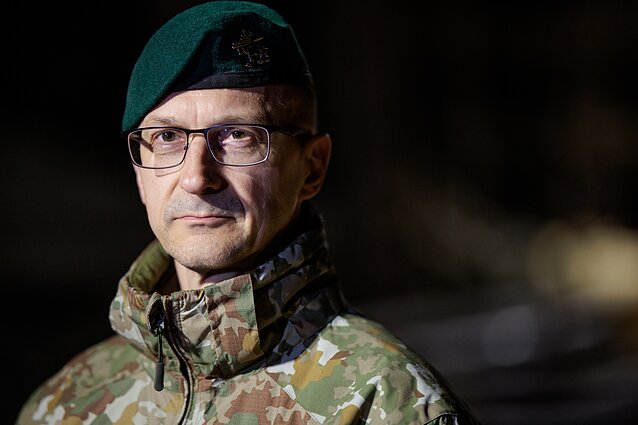For the first time in NATO’s history, a Lithuanian officer has assumed one of its most senior military positions. Lieutenant General Remigijus Baltrėnas has taken command of NATO’s International Military Staff, a move seen as both historic and strategic amid growing security concerns on the Alliance’s eastern flank.
Baltrėnas’ appointment marks a significant milestone not only for Lithuania but also for NATO’s evolving military leadership at a time of heightened geopolitical tension, particularly with ongoing concerns about Russia’s military posture and the war in Ukraine.
“This is one of the highest military posts within NATO, and I accept the responsibility with humility and determination,” Baltrėnas said.
A Political-Military Balance
Speaking on NATO’s identity, Baltrėnas emphasized that the Alliance remains a political-military organization.
“There’s a well-calibrated mechanism between political directives and military execution. The North Atlantic Council provides the political framework, and our job is to translate that into actionable military plans,” he explained.
Baltrėnas will oversee more than 500 officers from across the 32 NATO member states, working to ensure unity and operational coherence despite occasional political tensions among member nations — such as the longstanding rift between Greece and Türkiye.
“Our decisions are made by consensus, and my role is to help build that consensus through negotiation, diplomacy, and dialogue,” Baltrėnas noted. “Sometimes that means personally engaging with member nations at the highest military level.”
On Readiness and the Eastern Flank
With NATO’s eastern border increasingly seen as a potential flashpoint, Baltrėnas brings critical experience to the role, having previously served as Lithuania’s Chief of Defence Staff.
While acknowledging there is one unified NATO strategy, he recognized the specific security realities of the eastern flank, including the Baltic states.
“I cannot advocate for national interests anymore, but I can share my decades of experience to help shape effective collective defence plans,” he said.
Baltrėnas also addressed rising concerns over Russia’s potential preparation for a future conflict with NATO, as flagged by intelligence agencies in Poland, Germany, and Sweden.
“Russia’s preparedness is fluid and depends largely on the course of its war in Ukraine. NATO continuously assesses these dynamics to remain ready,” he said.
Article 5 and Deterrence: “NATO Is Already Defending Every Centimetre”
In response to fears among some citizens in frontline states like Lithuania that NATO might respond too late in the event of aggression, Baltrėnas offered reassurance.
“NATO is defending every centimetre of its territory not tomorrow, but now,” he affirmed. “Many of our efforts aren’t visible to the public, but they are in motion. The Alliance’s collective strength and deterrent posture are operational.”
He also made it clear that any decision to move from deterrence to a proactive military initiative would require a political green light.
“NATO is already deeply involved in helping Ukraine — through training, logistics, and support. But further military actions would need political consensus,” Baltrėnas added.
A Lithuanian at the Helm
Baltrėnas’ appointment comes at a symbolic moment for Lithuania and the broader Baltic region, which continues to advocate for stronger NATO presence and preparedness.
“It’s a proud moment for Lithuania,” he said. “But above all, it’s a signal that every NATO member big or small plays a crucial role in the security of the Alliance.”
As tensions simmer in Eastern Europe and global threats evolve, Baltrėnas’ leadership is expected to play a central role in NATO’s strategic and operational military planning in the years ahead.


